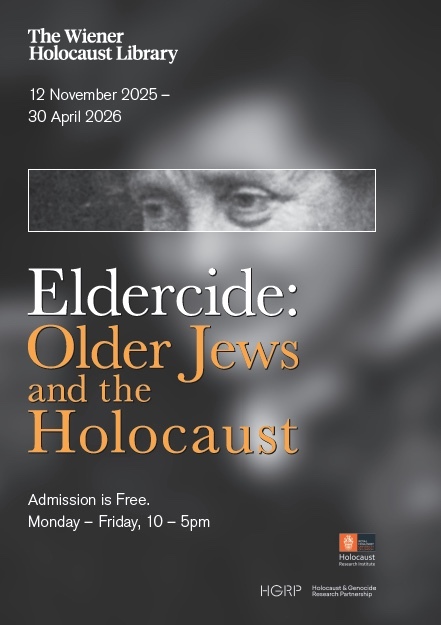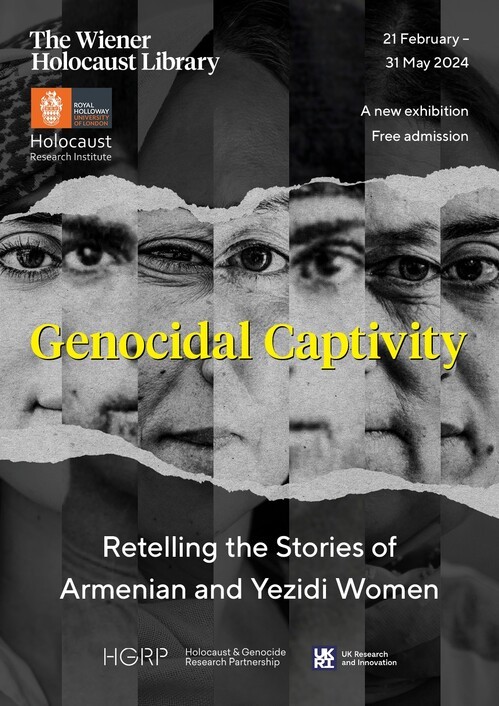Curated Exhibitions
Eldercide: Older Jews and the Holocaust
What did it mean to be old during the Holocaust?
What had older Jews lived through by the time they experienced Nazi persecution?
What happened to the small number of elderly Jews who survived?
This exhibition, co-curated with Prof Dan Stone of Holocaust Research Institute, Royal Holloway, University of London and staged at The Wiener Holocaust Library as part of the Holocaust and Genocide Research Partnership, will uncover the untold story of elderly Jews during and after the Holocaust through the eyes of people for whom 1945 often marked the end of their long lives. The exhibition explores the choices and humanity of older Jews in the face of persecution, flight and survival. Through rare photographs, personal stories and objects, the exhibition challenges our perceptions of age, vulnerability and agency, offering a vital new lens on the Holocaust.
What had older Jews lived through by the time they experienced Nazi persecution?
What happened to the small number of elderly Jews who survived?
This exhibition, co-curated with Prof Dan Stone of Holocaust Research Institute, Royal Holloway, University of London and staged at The Wiener Holocaust Library as part of the Holocaust and Genocide Research Partnership, will uncover the untold story of elderly Jews during and after the Holocaust through the eyes of people for whom 1945 often marked the end of their long lives. The exhibition explores the choices and humanity of older Jews in the face of persecution, flight and survival. Through rare photographs, personal stories and objects, the exhibition challenges our perceptions of age, vulnerability and agency, offering a vital new lens on the Holocaust.







